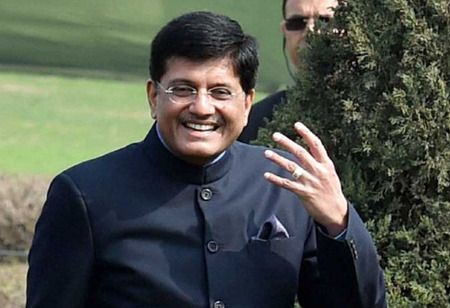
Piyush Goyal Calls for Self-Reliance in Energy Storage


Union Commerce and Industry Minister Piyush Goyal urged India's energy storage sector to avert uncertainty in supply chains by reducing dependence on imports from a handful of countries by focusing on research and development of innovative technologies and hedging of risks by exploring alternative import destinations.
Addressing the India Energy Storage Week 2025 virtually, the minister called for resilience in supply chains in the backdrop of the recent challenges faced by the Indian industry due to curbs imposed by China on export of rare earth magnets and fertilisers.
Later in the day, the minister met SBI Chairman, senior executives from other banks and ECGC to review and explore opportunities related to export credit.
The minister tweeted that he had reaffirmed the "Government's strong commitment to empowering MSMEs and small exporters through timely and affordable access to credit, enabling them to expand their footprint in global markets".
Also Read: WAVES 2025: Burgeoning India's Orange Economy
Speaking at CII's Conference on Export Logistics in New Delhi, Special Secretary (Commerce) Rajesh Agrawal highlighted India's existing 14 FTAs with 26 countries, including the UAE, Australia, and the recently concluded FTA with the UK, as initiatives to boost bilateral trade.
Stating that India is at an advanced stage of negotiations with the EU, negotiating a review for the ASEAN trade deal as well as trying FTAs with Chile, Peru, and New Zealand, he said that a clear set of commitments is being sought for trade facilitation in FTAs via seamless and time-efficient logistics.
Also Read: Leather Fashion Brands Endorsing Wholesome Culture
Stressing the ambition to increase India's trade from two percent currently to 10 percent of the world's merchandise trade as part of the Viksit Bharat journey, he highlighted the importance of logistics in trade as part of cost optimisation, where every country works on its own comparative advantages.
Stating that over 70 percent of the global trade is driven by value chains due to faster logistics, he said that countries having control over logistics end up gaining in global trade, while a lack of control over shipping and cargo leads to a trade deficit as shipping costs rise during any geopolitical conflicts.